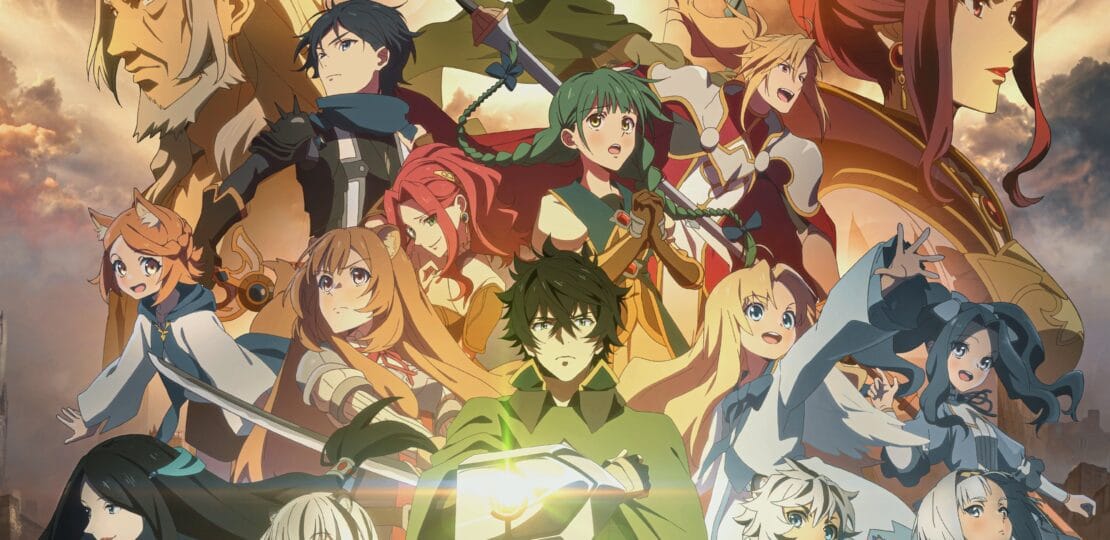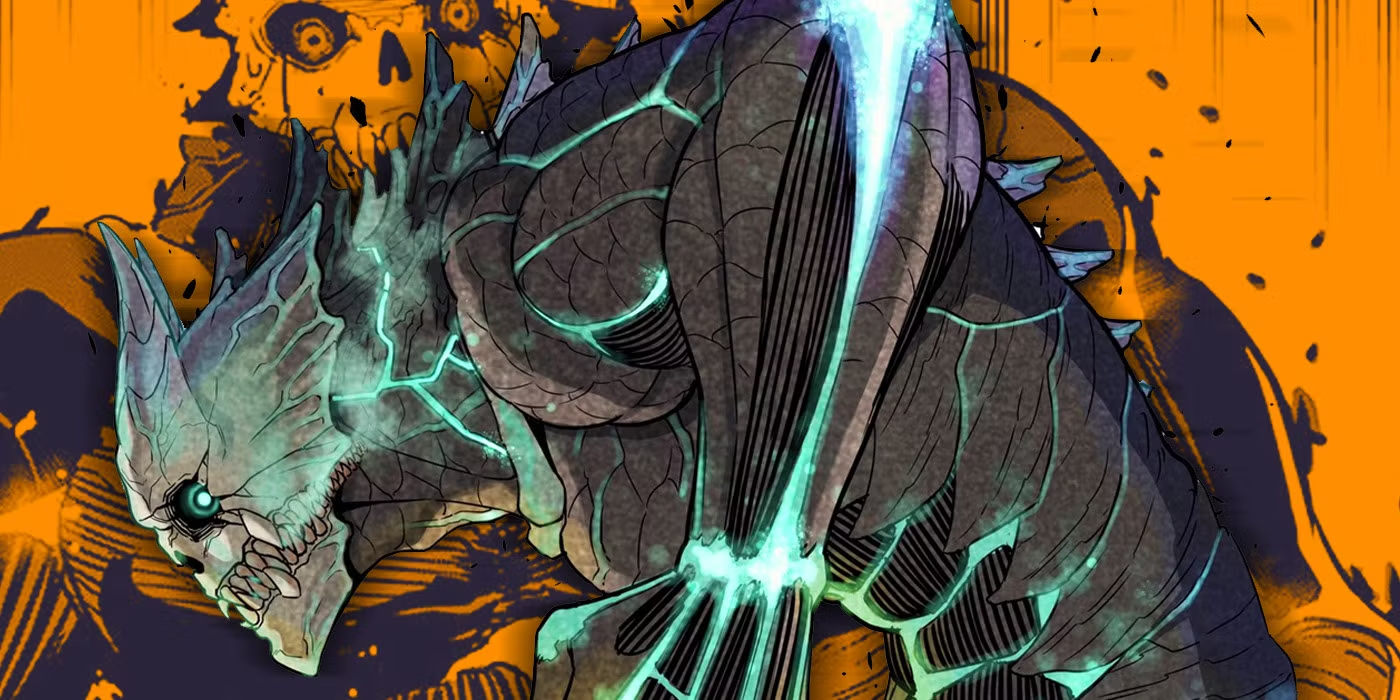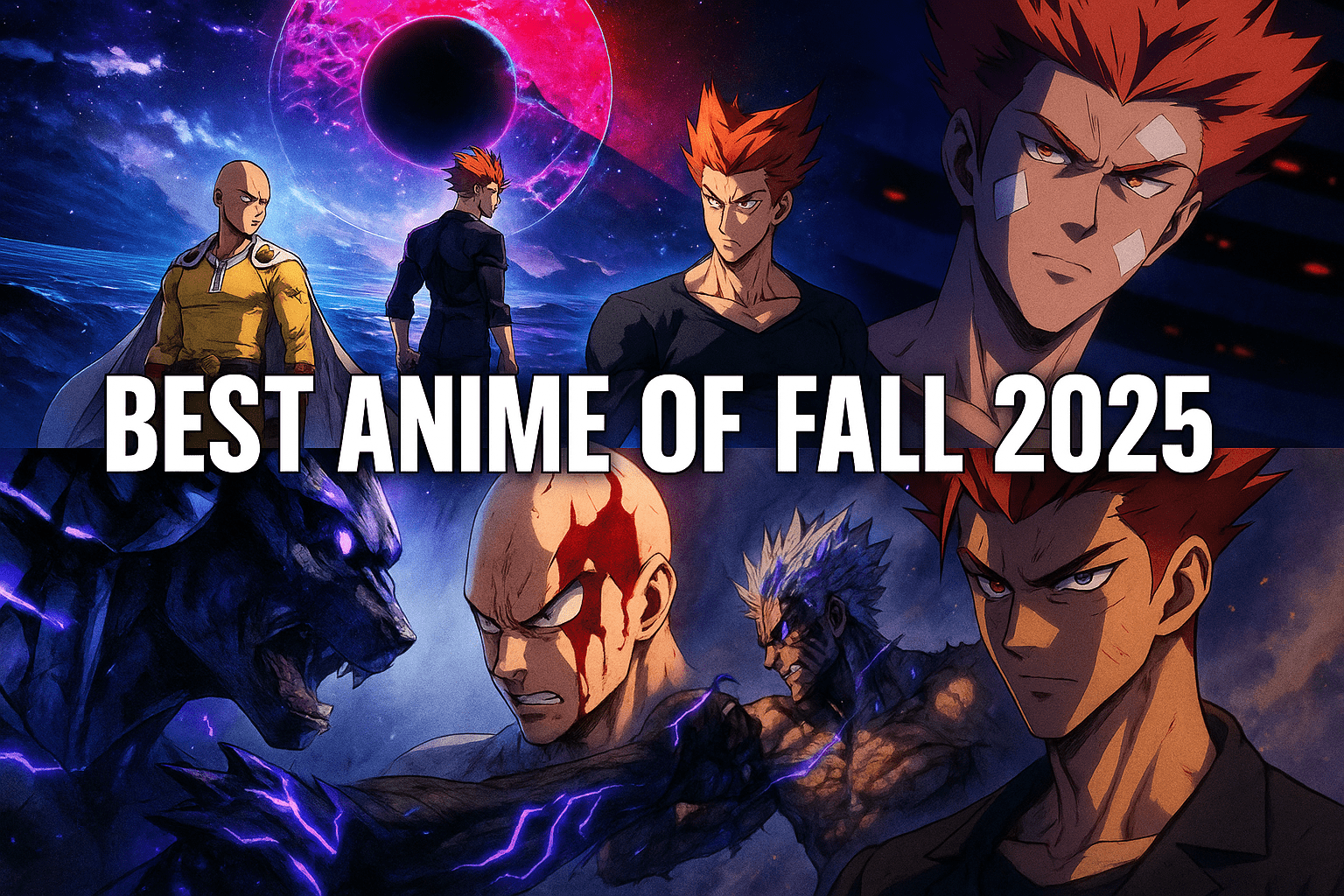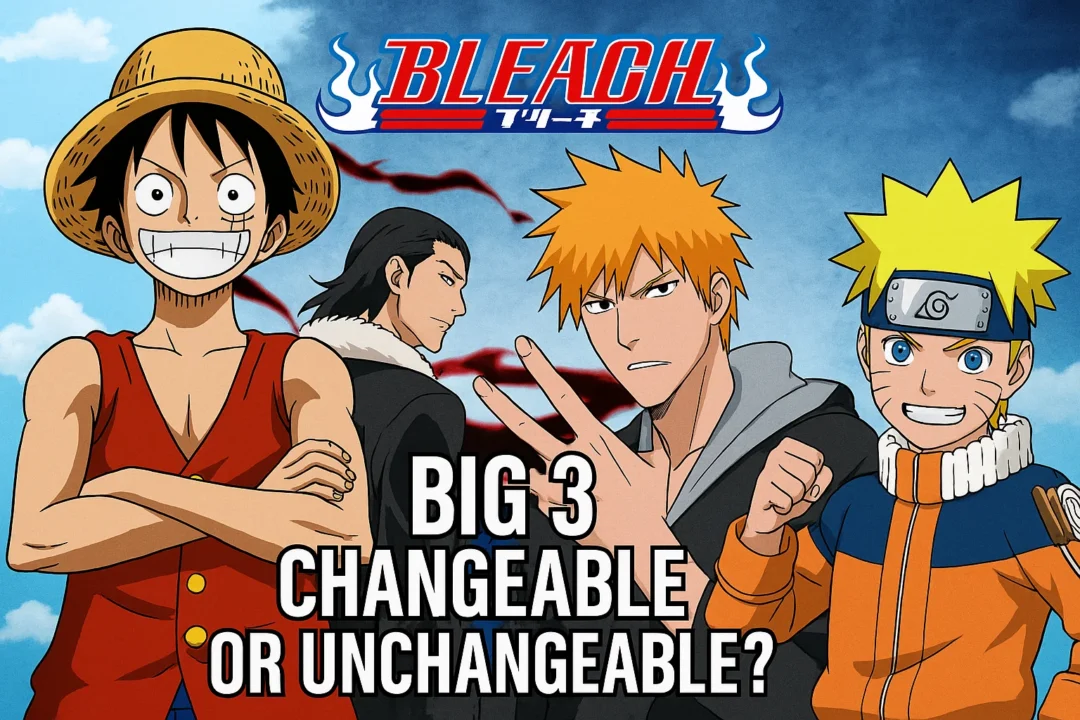The Rising of the Shield Hero Review: A Dark Isekai Reinvented
October 14, 2025 | by Vanitas

Introduction: A Hero Unlike the Others
Isekai (other-world) anime have long followed a familiar template: an ordinary protagonist is summoned, gains power, makes new friends, and defeats evil. The Rising of the Shield Hero diverges sharply from this formula by starting with betrayal, darkness, and moral ambiguity. Rather than a shining hero greeted by cheers, Naofumi Iwatani is scorned, betrayed, and forced to claw his way back from the bottom.
Upon its release in 2019, The Rising of the Shield Hero gained both praise and controversy. Its bold tone, flawed protagonist, and subversion of hero tropes made it stand out — but the handling of some darker elements (including slavery, false accusations, and misogynistic overtones) also provoked strong criticism. In this review, I explore whether its ambition pays off, how its narrative evolves across seasons, and whether it holds up as one of the more memorable isekai series.
1. Background & Production
1.1 Origins and Adaptation
- The anime is adapted from the light novel of the same name by Aneko Yusagi. Wikipedia+1
- It is produced by Kinema Citrus, directed by Takao Abo, with character design by Masahiro Suwa and music by Kevin Penkin. Wikipedia
- The first season aired from January to June 2019, spanning 25 episodes. Wikipedia+1
- Subsequent seasons were shorter in length and generated debate about pacing and faithfulness to the source material. Wikipedia+2Wikipedia+2
- The franchise’s popularity soared: by December 2018, the light novels had 3.3 million volumes in print; by April 2019, the novel + manga adaptations combined had sold over 6.2 million copies. Wikipedia+1
- At the 2020 Crunchyroll Anime Awards, Raphtalia won Best Girl, and voice actor Billy Kametz (Naofumi, English dub) won Best Voice Actor Performance. Wikipedia
2. Plot & Structure
2.1 Premise & Hook
Naofumi Iwatani, a college student, is summoned to a parallel world as one of four cardinal heroes: the Shield Hero. But while the other three receive weapons (sword, spear, bow), Naofumi only receives a shield — meaning he cannot attack directly. As soon as he arrives, he is betrayed: robbed, falsely accused of assault, and abandoned by the kingdom he swore to protect. His reputation ruined, he must rebuild his strength, forge alliances, and protect the world from looming “Waves” of monsters. Wikipedia+3Wikipedia+3geekytravelsfandoms.com+3
This inversion — making the hero the victim rather than the privileged savior — is the core freshness that draws viewers in. As one reviewer observed, “What happens if a hero is not welcomed in the world he was summoned to save?” geekytravelsfandoms.com
2.2 Seasonal Arcs & Pacing
- Season 1 focuses on Naofumi’s fall and gradual rise, introducing key characters (Raphtalia, Filo), uncovering conspiracies in Melromarc, and culminating in a high-stakes confrontation.
- Season 2 accelerates the pace, condensing large chunks of source material and glossing over character development in favor of plot progression. This led to criticism about pacing and coherence. Wikipedia+2IMDb+2
- Season 3 rebalances: listeners say there is more breathing room, deeper exploration of lore and character motives, and interesting role reversals among heroes. Getmorexp+1
- Season 4 is underway (2025), continuing the saga into new territories and with high expectations from fans. GamesRadar+
While Season 1 is often considered the high point, the later arcs expand the world and challenge the characters morally.
3. Characters, Themes & Development
3.1 Naofumi Iwatani — The Shield Hero
Naofumi is a protagonist defined by scars — both emotional and reputational. His journey is one of resilience, bitterness, and gradual rediscovery of trust. He cannot rely on brute force; instead, he must strategize, defend, and support others. Over time he unlocks a versatile arsenal of shields and passive skills. Wikipedia+1
He often oscillates between cynicism and empathy — a complexity that keeps him compelling. He thrives not just through power, but through leadership and moral conviction (even if flawed). In later seasons, his emotional arc — especially reconciling with his past and moving beyond vengeance — becomes more prominent. Getmorexp+2Sakura Sunrise+2
3.2 Raphtalia and Filo — Companions with Agency
- Raphtalia is one of the most praised characters in the series. Originally sold into slavery, she is rescued by Naofumi and becomes his closest ally. Her growth from a traumatized child (in demi-human form) into a strong, principled warrior is a core emotional anchor for the story. Wikipedia+2Wikipedia+2
- Raphtalia won “Best Girl” at the Crunchyroll Awards, reflecting how beloved she became. Wikipedia
- Filo is a daughter of the Filolial bird race. Cheerful, energetic, and immensely powerful when transformed, she provides levity and surprising depth. Her loyalty and innocence contrast Naofumi’s cynicism.
Together, Raphtalia and Filo ground Naofumi’s arc in relational stakes — their trust, trembling vulnerability, and aspirations drive much of the emotional weight.
3.3 Supporting and Antagonistic Cast
- The other three heroes (Sword, Spear, Bow) start out as rivals and oftentimes antagonists, particularly due to arrogance, envy, or misunderstanding. As the series progresses, each is humanized, and tensions blur.
- Malty / Myne is the central antagonist of early arcs — her false accusation against Naofumi sets the stage for the darker direction of the show. She embodies deceit, manipulation, and the abuse of power.
- Later arcs introduce characters from parallel worlds (e.g., Glass), new villains, and conspiracies involving the Waves, the church, and hidden forces beyond the hero summons.
These relationships and conflicts fuel the show’s tension, themes of trust, betrayal, and redemption.
3.4 Themes: Trust, Redemption, Heroism Reexamined
- Trust and Betrayal: The central narrative is built around betrayal. Naofumi is betrayed almost immediately, and rebuilding trust — with the world, with companions, with himself — becomes the show’s emotional backbone.
- The Nature of Heroism: Traditional hero narratives are subverted. Naofumi isn’t glamorous; his weapons don’t let him attack conventionally. The show repeatedly interrogates whether “saving” someone always benefits them, and whether ends justify means.
- Prejudice and Marginalization: Because Naofumi is shunned, deme-human races are oppressed, and slavery exists, there is sustained exploration of social cruelty and systemic injustice.
- Emotional scars and trauma: Many characters carry trauma — from slavery, betrayal, abandonment — and their recovery (or descent) is central to their arcs.
These themes make the show more than a generic adventure: it’s as much about internal battles as external ones.
4. Strengths & Appeal
4.1 Bold Premise & Emotional Stakes
One of the strongest pulls of Shield Hero is its audacity. It doesn’t shy from uncomfortable premises — false allegations, slavery, corruption — and uses them to fuel dramatic tension. The stakes are personal, raw, and often painful.
4.2 Character Depth & Growth
When handled well, the show’s characters are multidimensional. Naofumi is not a perfect hero; he stumbles, doubts himself, and learns. Raphtalia and Filo are not mere sidekicks. Their agency, growth, and emotional fragility lend the narrative weight. Many fans cite Raphtalia’s growth as a series highlight. Sakura Sunrise+3Wikipedia+3geekytravelsfandoms.com+3
4.3 Worldbuilding & Lore
The lore of the Waves, the hero system, parallel worlds, and layered conspiracies gives the series depth. As more is revealed, the narrative scope expands, inviting intrigue. The role reversals among heroes and the exploration of hidden agendas make later arcs compelling. Getmorexp+1
4.4 Spectacular Action & Strategy
Though Naofumi cannot attack directly, many battles revolve around defense, support, counterattacks, strategy, and synergy — a fresh twist on action in isekai. Moments like the Shield Hero vs Glass battle are often praised for their intensity (particularly in Season 1). IMDb+2Wikipedia+2
Even critics acknowledge the show “excels at the fantasy setting… both fun, lighthearted and dark, brooding and intense” in its balanced tone. IMDb
5. Weaknesses, Controversies & Critiques
5.1 Problematic Themes & Execution
- The use of slavery and false accusation, especially in early episodes, drew controversy for treading into uncomfortable territory. Some argue the show flirts with misogynistic overtones.
- Some critics feel it pushes darkness for shock value rather than meaningful commentary. As one piece put it: “It’s good but the series goes out of its way to be edgy and unreasonably offensive.” lutholtzj.wixsite.com
5.2 Pacing & Condensation in Later Seasons
Season 2, in particular, is criticized for cramming too much content without sufficient development. Transitions feel rushed, and some character interactions are sidelined. IMDb+2Wikipedia+2 Some feel this lost momentum and emotional resonance.
5.3 Inconsistent Animation Quality & Fight Choreography
While early battles shine, later seasons sometimes falter in animation consistency and intensity. Some viewers note that explosive fights lose impact in Seasons 2 and beyond. IMDb+1
5.4 Tonal Imbalance
Balancing dark themes with lighter comedic or uplifting moments is a tightrope. At times, the shifts feel jarring or tonally inconsistent — from bleak betrayal to overly cute interludes. Not all viewers embrace this swing. Anime Rants+1
5.5 Overreliance on Tropes & Deus Ex Machina
At certain points, the narrative leans on coincidences, hidden plot devices, or convenience to resolve conflicts. Some arcs feel more driven by plot than character logic. Perhaps some compromises were made in the adaptation process. The Traditional Catholic Weeb+1
6. Reception & Legacy
6.1 Critical & Fan Response
- On Rotten Tomatoes, Season 1 receives mixed but introspective feedback, with some calling it the only season “worth watching.” Rotten Tomatoes
- On IMDb, fans praise its fantasy setting, emotional range, and darker tone. IMDb
- On forums like Reddit, some users appreciate its setup, though note some flat villainy: “It’s a strong setup for relatively fun drama and character arcs. On the other hand, the extreme villainy of certain characters feels very flat.” Reddit
- Reviews like the one at AnimeRants note that while it has interesting characters and monster fights, they don’t always gel perfectly. Anime Rants
- Some blogs call it a refreshing change in the isekai space, praising its story and quest design. The Traditional Catholic Weeb
- But others caution that the show’s fault lines become more visible as it progresses. lutholtzj.wixsite.com
6.2 Awards & Recognition
As mentioned, Raphtalia’s Best Girl win and Kametz’s Best Voice Actor award underscore the characters’ resonance with audiences. Wikipedia The commercial success of the light novel and manga also reflects the franchise’s cultural footprint. Wikipedia
6.3 Influence & Position in Isekai
Shield Hero is often cited as among the more daring isekai series — not by offering escapism, but by interrogating the cost of being a hero. It inspired discussion about genre boundaries, narrative cruelty, and character agency. Its blend of darker themes with heroic fantasy raises it above many formulaic entries in the field.
7. What Works (and for Whom) — Verdicts by Season
Season 1 — The High Point
For many, Season 1 is nearly essential. It sets up the emotional stakes convincingly, fleshes out characters, and balances darkness and hope. The betrayal and Naofumi’s rise are compelling arcs that stay with you. Many reviews regard this as the strongest season. The Traditional Catholic Weeb+3Rotten Tomatoes+3Sakura Sunrise+3
If your priority is a tightly-paced, emotionally resonant fantasy, Season 1 delivers most consistently.
Season 2 — A Mixed Bag
If you continue, expect the pacing to pick up (sometimes too much). Some character beats are sacrificed. If you prefer deeper character introspection over plot escalation, Season 2 may be frustrating. Wikipedia+2IMDb+2
Season 3 — A Recalibration
Critics and fans say Season 3 recovers some balance. It gives breathing room, more relational focus, and a renewed sense of growth. Many feel it’s an improvement over Season 2, though still not quite reaching Season 1’s consistency. Getmorexp
Season 4 — Ongoing Potential
As of 2025, Season 4 is actively airing. Early reception suggests it continues building on prior arcs, with new threats and deeper stakes. GamesRadar+ Its success will depend on how well it sustains narrative cohesion and emotional resonance.
8. Strengths vs. Weaknesses — A Balanced Take
| Strengths | Weaknesses |
|---|---|
| Bold subversion of isekai tropes | Some controversial themes (slavery, false accusations) |
| Deep emotional arcs and flawed characters | Pacing issues, especially in later seasons |
| Compelling worldbuilding and lore | Inconsistent animation & fight quality |
| Strategic combat rather than pure offense | Tonal whiplash between dark and light |
| Emotional investment through companionship | Occasional reliance on plot convenience |
In short: The Rising of the Shield Hero is not perfect, but it is ambitious. It draws you in with pain, hope, and complex relationships — and when it works, it can be deeply satisfying. When it missteps, the cracks are sometimes glaring. But overall, it remains one of the more thought-provoking isekai series.
9. Recommended Audience & Final Verdict
If you’re:
- A fan of darker fantasy or morally gray stories
- Willing to tolerate some discomfort and narrative roughness
- Interested in character-driven arcs over spectacle alone
Then The Rising of the Shield Hero is worth your time — at least through the first season, and likely beyond if you enjoy its world.
If instead you prefer lighthearted escapism or tightly plotted, clean narratives, some of the darker or more controversial elements might make parts of the series off-putting.
Final assessment: The Rising of the Shield Hero is flawed, but memorable. Its ambition, emotional stakes, and willingness to push boundaries set it apart in a saturated genre. Season 1 remains its benchmark, but subsequent seasons offer expansions, surprises, and further growth — provided you’re patient with its uneven execution.
RELATED POSTS
View all


